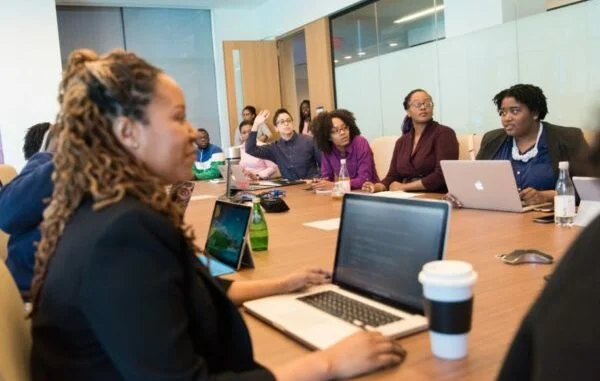
Linguistic Justice Collaborative is piloting free literacy programs for all ages in Tucker and Stone Mountain this summer. Photo courtesy of Literacy Justice Collaborative.
By Logan C. Ritchie
Summer literacy just got a lot more relevant.
Linguistic Justice Collaborative is piloting free literacy programs for all ages – from kindergarten to adulthood – in Tucker and Stone Mountain. From financial literacy to cultural literacy, LJC is connecting community, identity and history through language.
Multigenerational Memoirs begins June 13 at Cofer Library in Tucker for students in 7th through 12th grade. There are three to five spots still available in the class, said Mercer University Assistant Literacy Professor Leah Panther.
Youth writers will work with Mercer University faculty and local educators to develop a book prospectus, conduct interviews and draft a book. Working with Volo Press Books, students will learn how to publish the text.
An assessment by LCJ of Tucker families showed interest in writing support and volunteer work with assisted living facilities. Multigenerational Memoirs is a partnership between Mercer University, the DeKalb Public Libraries, and Volo Press Books as part of the Linguistic Justice Collaborative’s free summer literacy workshop series.
Programs have been so popular that LJC is launching one-day, drop-in events focused on Black Language, history and culture tentatively planned for June 18 and June 25 at the Stone Mountain Library.
n conjunction with Tucker High School and the Math Depot, LJC is wrapping up a financial language literacy program that will be incorporated into classrooms this fall. With support from Georgia colleges and universities, financial language literacy could expand across the state.
Panther said LJC’s mission is to identify, design and sustain community languages and literacies to equip culturally and linguistically diverse youth to participate in their communities through meaningful research collaborations. Collaborations work toward defining community literacies by understanding Georgia languages, Georgia identities, Georgia histories and Georgia places.
Read the original story on TuckerObserver.com.











